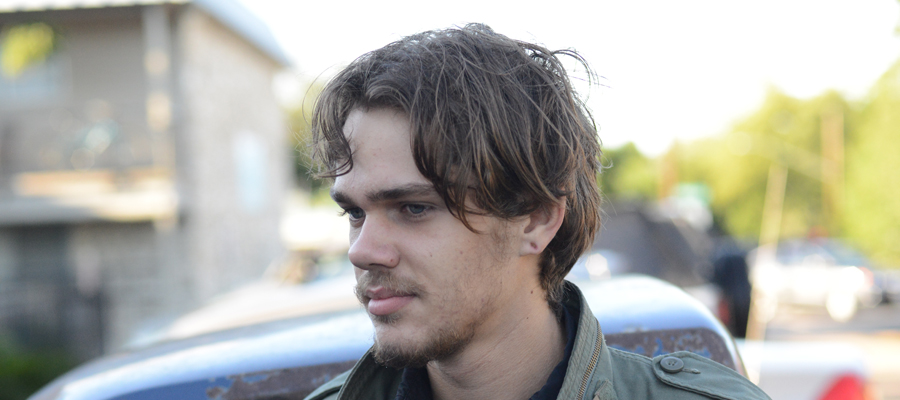 Back to selection
Back to selection
“Richard Helped Me Think About Myself”: 5 Questions for Boyhood’s Ellar Coltrane
 Ellar Coltrane in Boyhood
Ellar Coltrane in Boyhood There are few breakout roles that can top having your life documented on screen over the course of 12 years. Ellar Coltrane grew up in front of millions of eyes playing the role of young Mason in Richard Linklater’s Boyhood. It’s near impossible for audiences not to relate to Mason’s character as he navigates school, friendships, moving, relationships and family.
But Boyhood is also a film that leaves a lasting impression from its sum over its parts. The power of experiencing the characters transform over a dozen years is one that lets viewers appreciate more their own lives and changes. The film’s subtle power to let its viewers look inward is behind its almost universal praise.
The film has been receiving accolades around the world in anticipation of the upcoming Golden Globe and Oscar awards. Coltrane visited the Italian island of Capri to pick up the Capri, Hollywood festival’s Rising Star Award. We spoke with the young actor in Capri about how the filmmaking process helped him discover himself, why being selfish can be a positive thing, the importance of self-love, and how Richard Linklater taught him the power of collaboration.
Filmmaker: How did the film benefit your own life growing up?
Coltrane: Richard helped me think about myself. That’s more than anything what growing up with the project was. It was just kind of an outlet to explore what I was going through growing up, being a teenager. Especially being a teenager is so confusing, and you’re going through so many different things that you don’t understand. Having this fictional character to kind of take the things that I was experiencing and put them in this fictional world and look at them subjectively was very valuable to explore what I was going through. Richard gave me an outlet to explore myself.
Filmmaker: It can be hard in this day and age to find oneself. What advice do you have for people struggling with this?
Coltrane: Right. I think just focus on yourself. There’s this idea that it’s bad to be selfish, but it’s really not. That’s all you really can be. And if you can work on yourself and make yourself the person that you want to be, then you can be generous, then you can give to other people. But you have to love yourself first. That’s the most important thing, is loving yourself and becoming the person that you want to be. What other people think really doesn’t matter at all.
Filmmaker: How did you accomplish that? It’s easier said than done.
Coltrane: I don’t know. I have great parents. My parents are really awesome. And just focus on expressing yourself. Find an outlet. What the film was to me more than anything was an outlet to express myself as I was growing up, and explore what I was going through and to face the negative parts of life, these things that are supposedly bad. But you have to learn to accept and even love the bad parts of life, pain and suffering and sadness. It’s like those are all integral parts of what it is to be a human. You have to love that. You have to love sadness as much as you love happiness.
Filmmaker: What did you learn from Richard Linklater while shooting the film?
Coltrane: How to collaborate. That’s really the greatest skill that Richard has is allowing input. He knows the film he wants to create, but he is always grasping for more. He’s always asking for more input from the actors, and the crew, and from everything. That’s the way art should be, because it’s your expression, but it’s also the expression of all of humanity. That’s what it should be. People get too focused on their own personal identity.
I mean, that’s great but it’s not universal. I think you have to always accept inspiration from everywhere, from everything you do, even just sitting here right now. Everything you do is something to draw inspiration from, if what you’re trying to do is create something. Richard is very aware of that, and I think that’s beautiful — just the energy of collaborating, being able to incorporate your own ideas with other people’s ideas and find the ways that your experience relates to their experience and blend those into something that then everyone can relate to.
Filmmaker: Was there a particular moment while filming when you really saw Linklater’s vision come to life?
Coltrane: The very final moment, the last moment we shot, was the last moment you see in the film. That was very emotional for me. I think it was very emotional for everyone. It was very intense because we had become very invested in the film. In that moment I had kind of realized what he had been doing, and what we all had been doing and it was very intense. But I also was a kid when I started, so I didn’t think about it in that way until I saw the whole picture.
